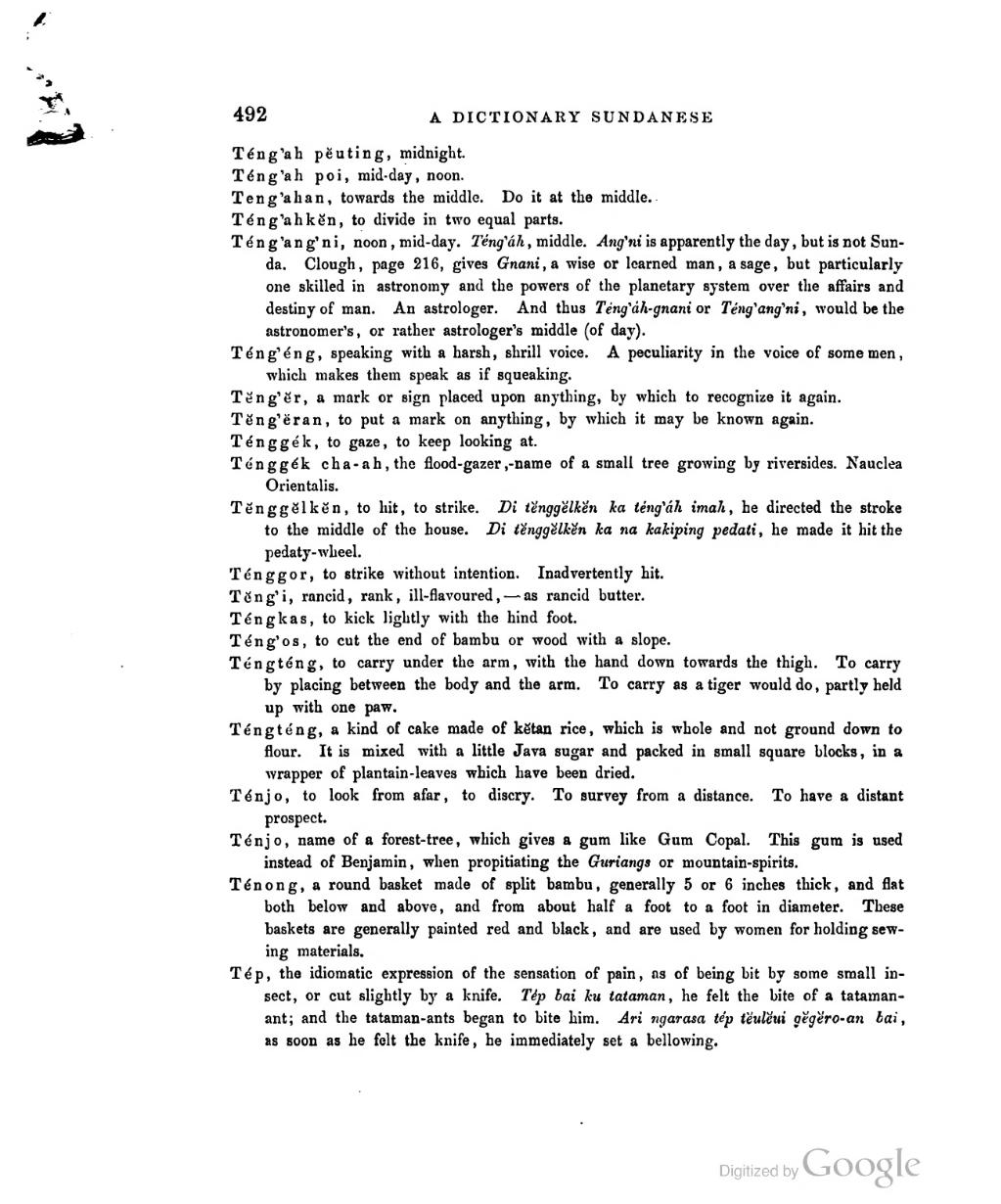Téng'ah pĕuting, midnight.
Téng'ah poi, mid-day, noon.
Teng'ahan, towards the middle. Do it at the middle.
Téng'ahkĕn, to divide in two equal parts.
Téng'ang'ni, noon, mid-day. Téng'ah, middle. Ang'ni is apparently the day, but is not Sunda. Clough, page 216, gives Gnani, a wise or learned man, a sage, but particularly one skilled in astronomy and the powers of the planetary system over the affairs and destiny of man. An astrologer. And thus Téng'ah-gnani or Téng'ang'ni, would be the astronomer's, or rather astrologer's middle (of day).
Téng'éng, speaking with a harsh, shrill voice. A peculiarity in the voice of some men, which makes them speak as if squeaking.
Tĕng'ĕr, a mark or sign placed upon anything, by which to recognize it again.
Tĕng'ĕran, to put a mark on anything, by which it may be known again.
Ténggék, to gaze, to keep looking at.
Ténggék cha-ah, the flood-gazer, -name of a small tree growing by riversides. Nauclea Orientalis.
Tĕnggĕlkĕn, to hit, to strike. Di tĕnggĕlkĕn ka téng'áh imah, he directed the stroke to the middle of the house. Di tĕnggĕlkĕn ka na kakiping pedati, he made it hit the pedaty-wheel.
Ténggor, to strike without intention. Inadvertently hit.
Tĕng'i, rancid, rank, ill-flavoured, — as rancid butter.
Téngkas, to kick lightly with the hind foot.
Téng'os, to cut the end of bambu or wood with a slope.
Téngténg, to carry under the arm, with the hand down towards the thigh. To carry by placing between the body and the arm. To carry as a tiger would do, partly held up with one paw.
Téngténg, a kind of cake made of kĕtan rice, which is whole and not ground down to flour. It is mixed with a little Java sugar and packed in small square blocks, in a wrapper of plantain-leaves which have been dried.
Ténjo, to look from afar, to discry. To survey from a distance. To have a distant prospect.
Ténjo, name of a forest-tree, which gives a gum like Gum Copal. This gum is used instead of Benjamin, when propitiating the Guriangs or mountain-spirits.
Ténong, a round basket made of split bambu, generally 5 or 6 inches thick, and flat both below and above, and from about half a foot to a foot in diameter. These baskets are generally painted red and black, and are used by women for holding sewing materials.
Tép, the idiomatic expression of the sensation of pain, as of being bit by some small insect, or cut slightly hy a knife. Tép bai ku tataman, he felt the bite of a tatamanant; and the tataman-ants began to bite him. Ari ngarasa tép tĕulĕui gĕgĕro-an bai as soon as he felt the knife, he immediately set a bellowing.
